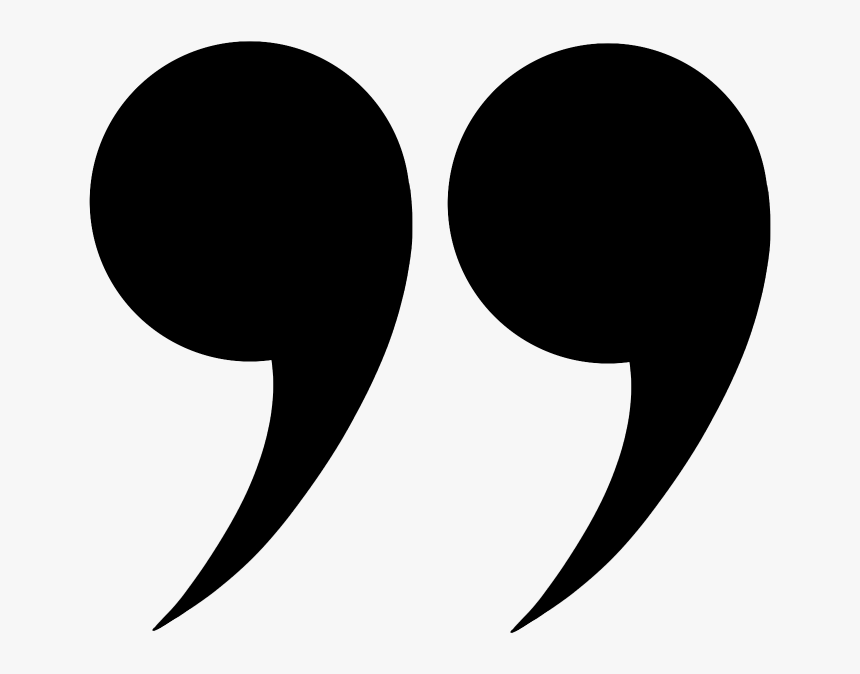The Definitive Resource for Strategic Meetings Management (SMM), According to the Guy Who Created It.
Kevin Iwamoto is not only Bizly’s CSO, he is the definitive expert in corporate travel, procurement, and GDPR. He activated (and continues to champion) the concept of strategic meetings management (SMM) as a business practice while he was President & CEO of the Board of Directors for the National Business Travel Association (NBTA) which is now the Global Business Travel Association (GBTA).

Strategic Meetings Management (SMM) is defined as the management of enterprise-wide meeting-related processes, standards, volume, spending, suppliers, and data to achieve measurable business objectives that align with the organization's strategic goals/vision and deliver value in the form of risk mitigation, quantitative savings, and service quality—that’s according to the GBTA groups and meetings committee. And yes, it is a mouthful.

“But when we created the concept, it felt simple, basically a no-brainer.”
I wanted to establish corporate governance at the enterprise level because I kept hearing: “we don't spend anything on meetings.” And compared to a $5-billion acquisition, sure, I agreed with that mindset. Meetings and travel were a drop in the bucket. But when I stacked meeting costs up against rank-and-file procurement expenses, the pain was much more evident.
Who was footing the bill for the Louis Vuitton swag, the event space rentals, and the five-star catering I was seeing in some of the meetings I attended? Not to mention some of the travel expenses.
Between the first class tickets and the executive suites at five-star hotels, the hidden costs were beyond substantial, and they weren’t showing up at all when P&Ls were under the accounting microscope.
Companies were dumping millions into meetings, and the paper trail was flimsy at best. Event agencies were subsidizing phantom vendor expenses with hidden commissions, and clients (big corporations) were seemingly getting billed zero. CFOs and CPOs weren’t seeing the loss at all. They were just assuming their companies weren’t having many meetings, or they weren’t having expensive meetings at least.
We needed governance and accountability. And that would mean a c-change for a lot of people in my industry.

“When we created the term "strategic meetings management" or SMM as we know it today, in 2004, it was more of a response to the confusing numbers we were seeing in our own periphery.”
What SMM has become is bigger, much bigger, and it continues to evolve. We’ve seen huge shifts to hybrid meetings since early 2020 for obvious reasons, but I’ve devoted much of my work life to SMM, not only as a marketable framework, but as a credo I instill in my own teams. And as big or different as it gets, I stand by the core tenants of SMM, and have seen its impact not only on the bottom line but on finance and spending transparency industry wide.
Needless to say, companies no longer think meetings and conferences are inexpensive. And we’ve been instrumental in pulling back the curtain for those who thought events weren’t things they hosted in the first place.
How much do conferences and meetings cost companies on average?

“The average cost of a conference can be as high as 5% of annual sales, 25–30% of total T&E spend, and 60% of air volume—that’s 3% of revenue! That’s a huge number for enterprise corporations.”
If your books are telling you something different, your organization could be unwittingly hiding meeting costs. If I were to talk to your people (the meeting and event mavens), I would ask them about average meeting costs and automation tools. If the question stumped them, that’s where I would start. Processes built around those two things are key in reducing unnecessary expenses.
Who are the stakeholders in SMM?
Event management, planning, and execution remains complex. The concept and governance model involves internal stakeholders (decision-makers, managers, etc.) and external parties (event planning industry specialists). And those parties have different agendas, meaning they handle money, there’s and yours, differently. Go figure.
An SMM program, in its purest state, is created to align the interests of both internal and external stakeholders, while also taking into account regulatory compliance, cost, and risk mitigation.
What is the Difference Between SMM and Strategy Meetings?

I often forget, or used to at least, that when I say strategic meetings management, people assume I mean strategy meetings, and that’s understandable, because SMM as a practice will require a lot of strategy meetings. So it’s good to make that distinction early on in the conversation.
A strategy meeting is more like a group discussion on efficiently using an organization's resources to achieve specific objectives and goals. Depending on what you are looking to achieve, you can employ strategy meetings for several reasons.
Here are some examples of common strategy meeting objectives I’ve seen over the years:
-
Boosting sales
-
Enhancing product design and improving client service
-
Increasing the effectiveness of marketing and advertising
-
Developing a new market
-
Pricing optimization
-
Effectively utilizing technology
-
Maintaining business practices
Both low-level and game-changing brainstorming and proper planning sessions are common at strategy meetings. Some businesses spend a whole day or more strategizing for the business's future. While it may appear that holding a strategy meeting takes time away from more essential, time-bound responsibilities, these sessions have a variety of long- and short-term benefits:
Here are some of the benefits of strategy meetings.
- Clear vision
Holding a strategy meeting allows you and your company members to build a clear and shared vision for the company's future.
- Departmental alignment
Organizational alignment for large-scale strategy discussions is critical. Strategy meetings help highlight challenges within the organization preventing the company from achieving its objectives.
- Open communication
The strategy meeting allows for forum or open communication and attendees can freely voice their thoughts and concerns. Employees who are empowered to operate autonomously have clear goals and instructions for their work.
- Refined culture
Knowing where the firm is going and how the employees will get there helps cement the organization's values, mission, and culture.
What is the Purpose of SMM?

SMM is the management of all meeting-related processes, so it’s a governance model, not the actual meetings themselves, but effective SMM adoption will of course require strategy meetings. Apologies if I’ve confused you, but it’s invariably a subject that always comes up.
We know planning teams work in silos without comprehensive event management, with limited visibility into meeting activity throughout the company. The procurement process becomes inefficient as a result of this. Event planners spend hours, if not days, redoing the work of their peers. For instance, you might be sourcing hotels and vendors without realizing that a coworker has just arranged a successful event in the same market and has lists of all the best venues and service providers.
They also miss out on savings potential because of a lack of spending transparency. In reality, Monitoring and Evaluation (M&E) is one of the largest categories of unmanaged spending for many businesses.
The absence of meetings management protocols can expose companies to multiple risks, including security breaches, lawsuits, and high attrition and cancellation fees.
What Are the Functions and Roles of Strategic Meetings Management?
xA meeting program often consists of four primary roles for individuals who are new to the notion of strategic meeting management and want to adopt SMM into their ecosystem:
- Event Planning and Management
Event management and planning is one of the most basic and well-known applications of an SMM platform. An SMM program assists firms in planning a variety of activities, from meeting scope to hotel and flight bookings.
- Bringing Diverse Elements Together
A meeting is made up of people who are involved in the planning and implementation of the event. A corporation can use the SMM program to synchronize and connect these many partners by optimizing the resource procurement process.
For example, a venue sourcing tool, which is included with SMM packages, may be used to issue RFPs, which can aid with the quick sourcing of items like travel and lodging.
- Maintaining a Financial Checklist
One crucial benefit of an SMM program is that it helps people manage budgets. With an SMM program in place, an organization's decision-makers can know ahead of time how much an event or meeting will cost to enable and hence determine which components to add or eliminate.
- Management of Risk
Strategic meeting programs also tend to assist firms in mitigating risks, as I alluded to earlier. It helps keep track of contractual responsibilities to suppliers and vendors. They also help with schedule conflicts and event attendance.
Why Should You Advocate for Strategic Meetings Management Program?
While there are numerous advantages to having an SMM program in place for your company, there's one obvious benefit that stands out.
SMM helps maximize return on investment (ROI). When you say ROI, people listen.
Although the term "maximizing ROI" can sound cliche, in the case of SMM, it is a fundamental (inherently trackable) benefit. But it’s also important to get ahead of assumptions. SMM is not just about cost-cutting; it also allows organizations to plan and execute events with specific goals in mind, all without sacrificing quality.
ROI is usually calculated based on the delta difference between the first quote and the last negotiated quote. I would suggest that ROI should additionally factor in an attendee's experience, which resulted in delivering better results for the company.
What Are the Tangible Benefits of SMM?
Many of the tangible benefits of SMM correlate closely with the functions or roles I mentioned earlier, so think of these as ROI and good talking points for any detractors.
- SMM Increases Your Spending Visibility
An efficient SMM program will give you more visibility and transparency into the costs associated with holding a global company conference. In general, with SMM, the organization's stakeholders have access to single consolidated information of spending to see what a specific department is spending or where their fund is going.
- Compliance Can Be Made Easier With SMM
Any event that is held must be compliant with both internal and external policies. Internal policies are company-specific rules established by company stakeholders, and they might range from the maximum budget allotted to the frequency of such meetings.
External policies are specific to a place, such as the United States Corrupt Practices Act or pharmaceutical industry compliances. Because SMM is integrated and transparent, it helps you to follow these regulations at all times, reducing the odds of hitting a compliance barrier.
- SMM Helps Mitigate Risk
Having Strategic Meetings Management Certification allows you to effectively store and record all contractual responsibilities, permits, and authorizations in a single central database, making it easier to access and analyze each commitment you have, reducing the chance of late or missed payments, as well as defiance of legislation.
- SMM Has the Potential to Improve Productivity and Data Quality
An SMM program can streamline processes by putting all necessary procedures of enterprise meeting management, such as procurement and proposal, transportation and selection, accommodation and approval, and so on, under one umbrella. This increases reaction time, which increases productivity.
SMM automation saves analytics in a single central database, allowing it to detect and eliminate duplicates. It’s called data hygiene, and your numbers people will love it.
More immediately, SMM makes it simple for companies to get the best Return on Engagement (ROE) by streamlining all strategic management procedures and minimizing the costs connected with them, ultimately boosting total company profitability.
How Do I Pitch Strategic Meetings Management to My Boss?
As with all things, there’s a right way and a wrong way to advocate for (and implement) SMM at your company. Here are some approaches I’ve seen work in the past.
- Be open and honest
Make sure all of the information you discuss is accessible. The good and the bad. Lack of transparency is at the root of your problem, and you know how that ended up.
- Be concise
The value and impact of SMM should be very clear. Estimate ROI and prepare answers for those tricky change management questions that will inevitably come up.
While the group should ideally moderate itself and remain focused on the agenda issue under discussion, if necessary, refocus and divert the group to ensure the meeting's success.
- Entertain all opinions
It's common to develop ideas or solutions to unrelated problems during an SMM pitch. Other company weaknesses often come to light in these discussions. Make sure you politely “put a pin” in those gripes and plan accordingly without losing sight of SMM, but reiterate how important those issues are.
- Seek advice
Listen to every stakeholder. Inclusive agendas gain more momentum. If you seek direct feedback or ideas from specific attendees before you have the big talk, it will ensure everyone is heard and that all thoughts are expressed. Not everyone wants to go to the party, but they hate it when they aren’t invited.
What Does the Future Hold For SMM?
If I had to sum up my thoughts on SMM, and the future of the model, I’m confident it will continue to evolve, but the benefits will ultimately hold. We’ve always considered it to be a perpetual work in progress.
- SMM will continue to take the guesswork out of preparing for events. More stringent role definitions spell out precisely what each planner is responsible for and how they should plan.
- The new workforce is values-driven and see accounting transparency as a critical attribute when they are job hunting. SMM processes will give companies a leg up.
- SMM will keep meeting expenses under control and set a foundation of mutual trust. Though it may feel like a cost cutting measure, it really enables mutual trust between executives and management. Management understands spending limitations, and executives ultimately know how much they can expect to pay for meetings of any size.
There's no need to reinvent the wheel, just keep your eye on it as it turns, and SMM seems to turn a little faster every day. If your company is having trouble tracking meeting and event costs, I would recommend investing in a good SMM platform.
